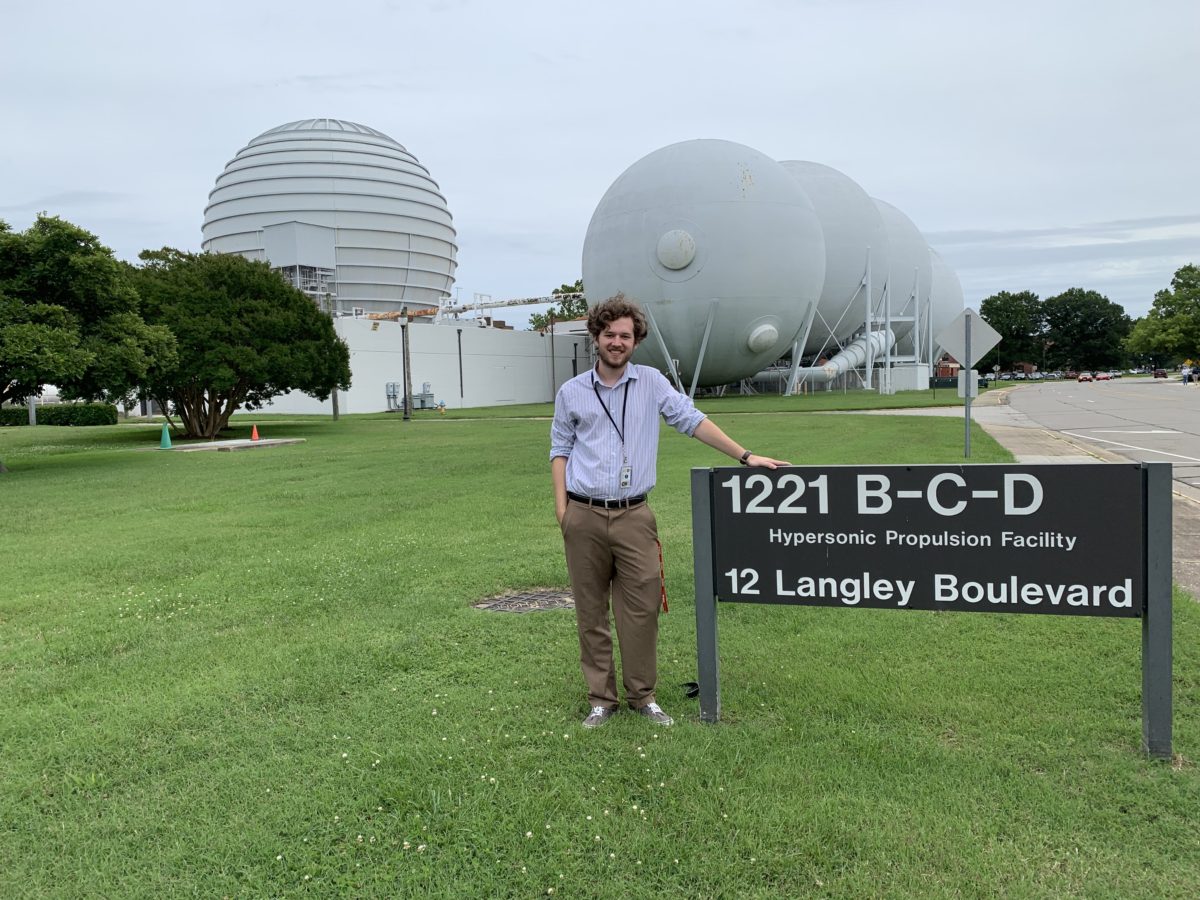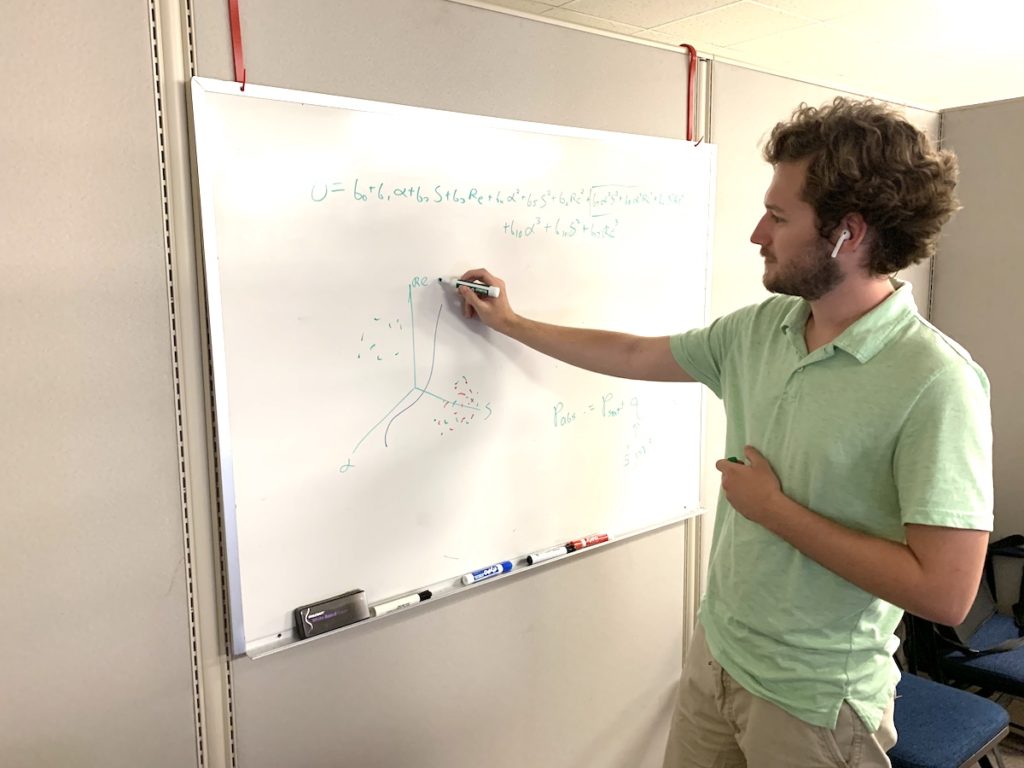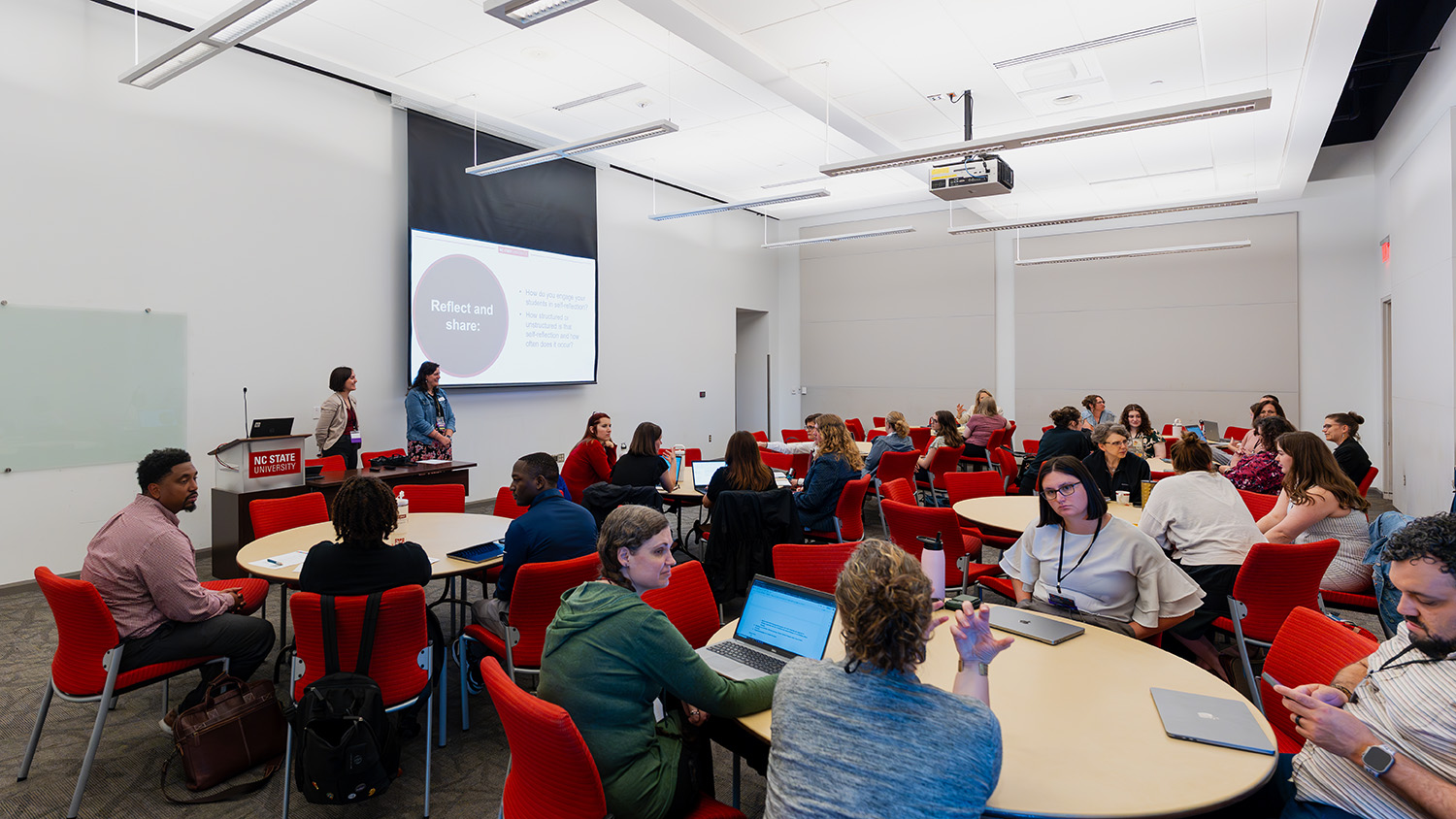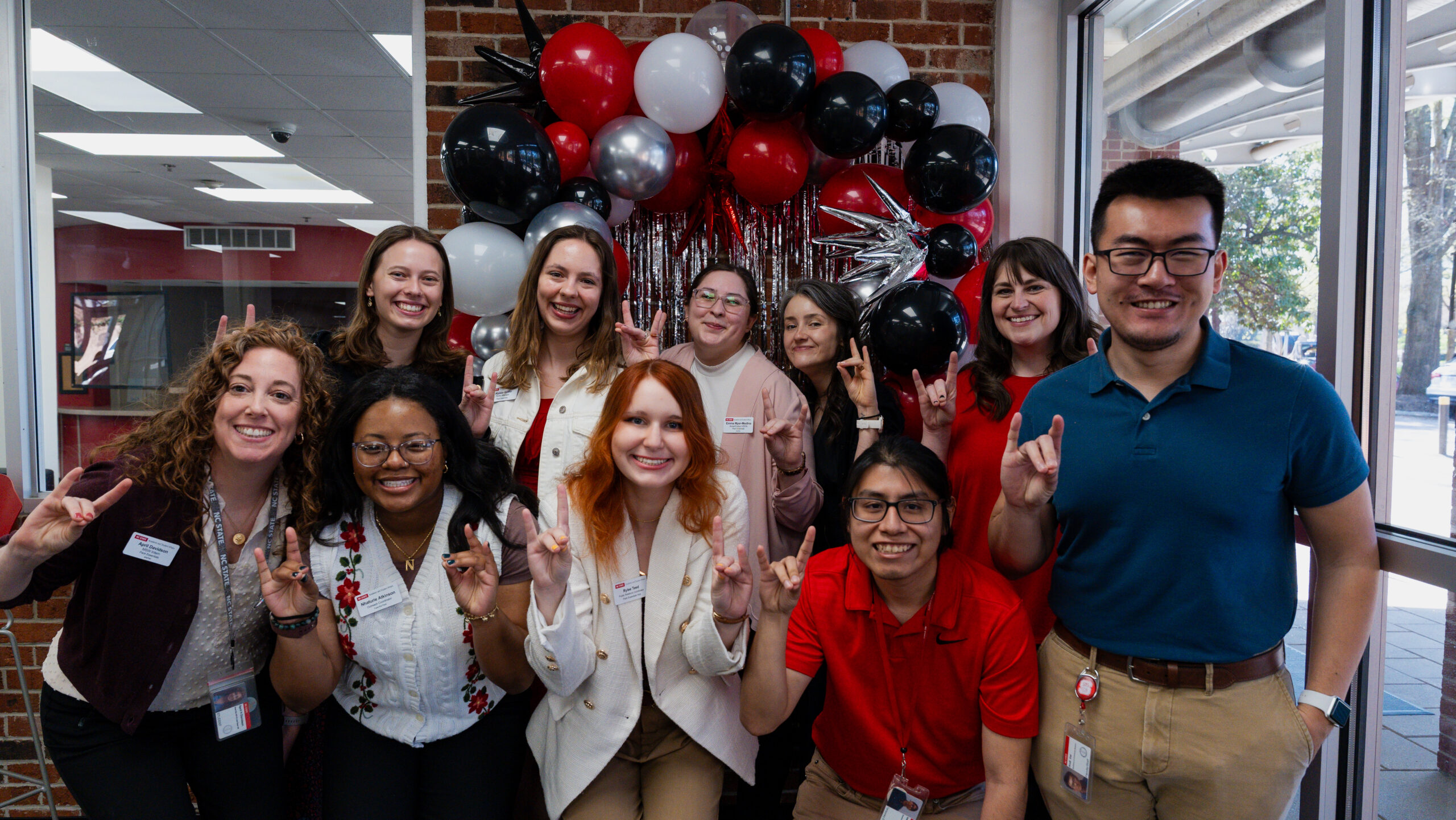Spotlight on Our Students: Summer at Langley

In this edition of Spotlight on our Students, we interviewed Nate Faulkner about his summer research experience at Langley working in the wind tunnels to get a feel for full-time research in the field of Aerospace Engineering.
Nate is a rising junior University Honors student from Salisbury, North Carolina, majoring in Aerospace Engineering. Read on to learn more about his time NASA Langley and the details of his fascinating research.
UHP: Nate, any time we hear of our students working or researching at NASA we sit up and want to know more. It’s fascinating. And NC State has a history of alumni working there. But, stepping back for a moment, what got you interested in Aerospace Engineering?
NF: So I initially applied to NC State as a physics major and later changed to aerospace engineering since I thought it could be a better way to do some hands-on work. I absolutely loved physics and math and being able to apply those to real-world issues is incredibly fun to me. Each project is like an enormous puzzle with tons of potential solutions to explore. The hunt for that best or better solution is a big part of what I love about engineering.
UHP: So you’re a hands-on problem solver. There’s no shortage of need for those in the world! What are you hoping to learn the most about during your time at Langley?
NF: I hope to learn a lot. One specific area I hope to be able to expand my knowledge of is statistics, as different statistical methods are a big part of the project I’m working on now, as well as some machine learning techniques. More generally, I want to get a better feel for what research really entails. I want to be able to see the thought processes, trial and error, and brainstorming that goes into tackling large, sometimes ambiguous, problems.

UHP: So you’re trying to simultaneously pick up some new skills and techniques while getting a feel for the world of research. That is admirable and a great way to see if the path you’ve chosen is the right fit. Can you tell us about some of the most interesting parts of the project you’re currently working on? What are some of the challenges?
NF: The most interesting thing I’ve been able to do so far is to sit in on a wind tunnel test of the scale model we’re testing. To be able to see a live feed of a model like that put into a flow going at Mach 6 is incredibly exciting and, as an aerospace engineer, I was really able to nerd out about that.
The most challenging aspect of the project is just the open-ended nature of it. We don’t currently have the best solution and the hardest part has been deciding where exactly we want to take things next. We could change the kind of model we’re using or the method we use to predict outcomes or even the kinds of conditions we sample at in the wind tunnel, and all this adds lots of variability that can be hard to work through.
UHP: So you really do have the opportunity to see your education at work which is something that all students should aspire to. But it sounds like the scale and ambiguity might be a challenge. Those are good lessons to have exposure to as they can help you navigate life post-college when things get a bit more ambiguous. Is there anything you have learned that you’ll definitely take with you?
NF: That there is no right answer to the problem, some solutions may be better than others, but there is no one correct answer. We’re going to try a lot of different things during this project and a lot may not work out as we want but that’s what research is all about. Knowing there isn’t one right answer helps in that I know I’m free to explore all different kinds of avenues for potential solutions.
UHP: If that isn’t a metaphor for life, I don’t know what is… Would you say your time in the University Honors Program has helped prepare you in some way for this experience at Langley?
NF: Definitely. The UHP made me get out of my comfort zone in that I had to take classes I never would’ve. I may not have had to learn about Bayesian statistics, but having to take a harder philosophy class when I otherwise wouldn’t have was great at preparing me for learning about and being open to trying new things in this project. When I see something I never have before I can be open to it knowing that it could be extremely useful to me.
UHP: So the concept of being open to taking intellectual risks sounds like it is resonating with you in this research. That’s so crucial as a future knowledge creator. What would you tell other University Honors students about how to prepare for a big research experience like this?
NF: The best thing I can tell other students is to talk to people and listen to their ideas. Research is all about collaboration with others. No one person changes the world alone, everything is a team effort. So getting practice at collaborative work and being receptive to others’ ideas is a great place to start if you’re interested in research.
UHP: That’s so true – collaboration makes the world go round. To close up, we always ask, what’s the best bit of advice you’ve ever received?
NF: Well, this is less advice and more of a saying, but, “tonight we feast on the labour of centuries.” Meaning that nothing is accomplished by an individual, everything great humanity has ever done was done together and with the help of everyone that came before us.
UHP: YES! Again, that crucial concept of collaboration and how essential it is to achievement in all things. Nate, this has been a wonderful glimpse into your summer, thank you for taking the time to fill us in. We look forward to catching up with you in the Fall when you get back to campus. Take care.


